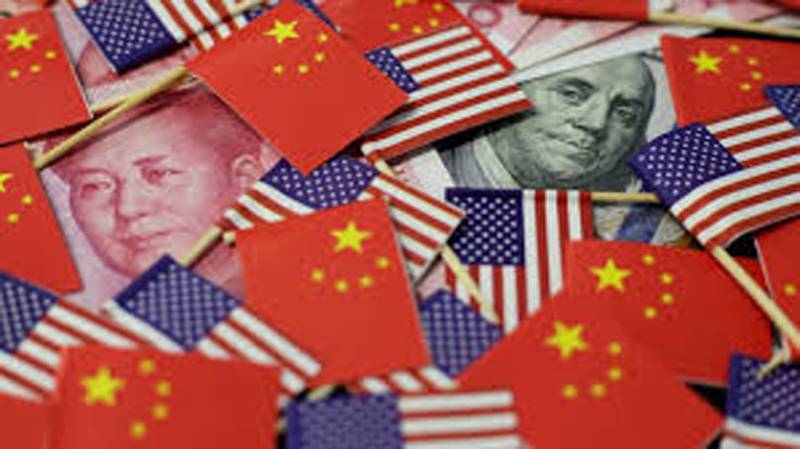NEW YORK - Singapore - Growing competition and ratcheting hostilities between the United States and China promise to dominate a key Asian security summit this weekend, with Beijing sending a high-ranking general for the first time in almost a decade to meet defence counterparts from countries across Asia and around the world.
Chinese Defence Minister Wei Fenghe is expected to hold talks with acting US Defense Secretary Patrick Shanahan on the sidelines of the Shangri-La Dialogue, while both are separately scheduled to deliver major addresses to the three-day meeting.
Launched in 2002 and held each year at Singapore’s Shangri-La Hotel, the summit is Asia’s largest annual defence and security gathering. It seeks to promote bilateral dialogue among sometimes hostile adversaries, and is traditionally attended by delegates from Asia Pacific nations as well as the US and other countries. Wei will lead the Chinese People’s Liberation Army (PLA) delegation, a break from the past when lower level Chinese military officials routinely attended the summit, organised by the UK-based International Institute for Strategic Studies (IISS) think-tank.
“In a highly anticipated speech, General Wei Fenghe will speak on China’s role in the Indo-Pacific at a pivotal time for the region,” IISS Director-General John Chipman said in a statement. “His presence at the dialogue provides a unique opportunity for those in attendance to engage with a leading figure within the PLA”.
Wei is scheduled to speak on Sunday, the final day of the forum; he is expected to tout China’s role in the regional economy and security, as well as engage with questions from delegates.
Escalating tensions between China and the US have boiled over in recent months as the world’s two largest economies engage in an ongoing trade war with tit-for-tat tariffs on each other’s goods that have jolted markets and threaten global economic growth. As part of the dispute, US President Donald Trump blacklisted Chinese telecommunications giant Huawei, effectively barring US companies from doing business with the world’s largest maker of telecoms equipment.
Meanwhile, China’s military buildup in the South China Sea continues to raise international tensions, with the US deploying warships to challenge Beijing’s maritime claims over the key sea route between the Pacific and Indian Oceans. China’s building of artificial islands and military installations in the South China Sea has led to heated exchanges at past defence summits. Separately, US support for Taiwan’s sovereignty has enraged China, which threatens to reclaim the self-ruled island by force if necessary.
Wei’s presence at the high-profile summit reflects a growing view that China seeks to fill a void created by diminished US global leadership. China’s Belt and Road Initiative, for example, exports Chinese economic influence and soft power by building a modern-day Silk Road linking Asia, Europe and Africa. At the same time, many see Trump conducting foreign policy “in volatile starts and fits”, Elvin Lim, professor of political science at Singapore Management University, told Al Jazeera. “This is not a Trump phenomenon, but a situation that arises from a country that is of two minds on just about anything that matters,” Lim said.
“China, as the new kid on the block, will be seeking to expand its soft power incrementally and opportunistically as the US proceeds on its vacillating path.”
Evan Resnick, an assistant professor at the S Rajaratnam School of International Studies at Nanyang Technological University in Singapore, also sees China capitalising on the decline of post-World War II US multilateralism, and furthering its ambitions in key areas.
“Unlike his post-1945 predecessors, Trump could care less about human rights and is not interested in upholding international law, which has provided Chinese President Xi Jinping with considerable wiggle room to clamp down on human rights at home and continue to engage in expansionism in the South China Sea”, Resnick told Al Jazeera. “Trump is singularly focused on trade issues, but has gone about correcting them in a self-destructive manner, via tariff hikes and trade war.”
Conflictual issues between China and the US are unlikely to disappear soon as they are a by-product of a restructuring global order. Rohan Mukherjee, assistant professor of political science at Yale-NUS College in Singapore, sees a period of uncertainty ahead.
“Barring a sharp reversal in US foreign policy, the US-led multilateral order will slowly dissolve with nothing really replacing it. In Asia, China will continue to build its influence and power through patronage relationships”, he told Al Jazeera.
A Friday evening keynote address by Singapore Prime Minister Lee Hsien Loong will open this year’s summit. Singapore maintains neutrality and has repeatedly called for moderation in the US-China rivalry.






